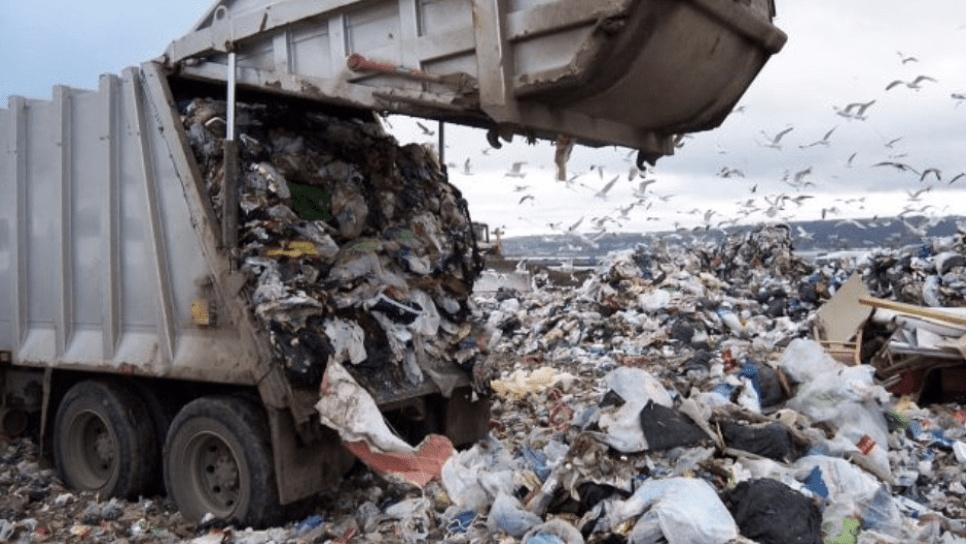Holding Big Companies Accountable: How Genuine Are They When it Comes to Reducing Their Environmental Impact?
Within the past few decades, environmental consciousness has become more and more of a priority, not only among individuals, but also among large companies. Many brands have become more open when it comes to their environmental impact and sustainable practices; however, with that comes a concern of genuineness. Are big companies genuine about reducing their impact on the environment, or is it simply a tactic to benefit the company over anything else? Recently, actions by the Coca-Cola Company have gained considerable discussion among the public regarding how genuine their environmental and recycling efforts are.

In the past few months, Coca-Cola has been receiving both praise and criticism for their decision to change the color of Sprite bottles from green to clear. Since the company launched Sprite in 1961, the beverage has been associated with a classic green bottle reflecting its lemon-lime flavor. For many, if told to picture a bottle of Sprite, they would imagine a green bottle rather than one of the newer, clear bottles. Thus, the public is asking the question: why after 61 years is Sprite changing its iconic, unique bottle color to something much more ordinary?
Since the 1990s, Coca-Cola has acknowledged their influence when it comes to pollution and has strived to reduce their impact by improving their bottles. For a few decades, their soda bottles have been made of polyethylene terephthalate (PET) plastic, which is lightweight and food-safe material that can be recycled into carpets, clothes, and back into more plastic bottles. Coca-Cola has stated that they eventually want to make all of their bottles out of recycled PET plastic, however that type of recycling is the easiest when the plastic is clear. Thus, Sprite is transitioning from a green bottle to a clear one, supposedly all in the name of reducing waste and improving recycling efforts.
However, not all are applauding the efforts of Coca-Cola; some are suspecting that there may be ulterior motives behind the color change in the bottles. While yes, the transition to clear PET bottles is a great step, according to the US Environmental Protection Agency, Americans recycle only thirty percent of PET bottles while the rest are thrown away. This means that Coca-Cola is creating large amounts of waste which end up in landfills. So by switching Sprite bottles from its unique green color that are easy to spot in landfills, to a clear, ordinary bottle, some consumers are suspecting that this change in bottle color allows the company to take less accountability for their waste generation.
This raises the big question to consumers: how can we hold big companies accountable? As an individual, it may seem like your single voice may not be able to make a difference, but it does in fact play a crucial role. It is essential for individuals to come together as a collective to make change on a larger scale by altering habits and proving to companies that their authenticity, or lack thereof, is recognized. It is possible that our collective efforts can keep big companies accountable for their environmental impact and decision-making in sustainability. But besides holding companies accountable, we have to remember that as consumers, we also need to be held accountable for supporting these poor practices by big businesses. It is easy to blame companies but may not be as easy to sit down and truly reflect on our own habits and the large-scale practices that we are fostering.
At the end of the day, whether Coca-Cola’s motives are genuine toward taking care of the environment or not, in an interview with National Public Radio (NPR), Sarah Dearman, chief innovation officer at the Recycling Partnership, explains that Coca-Cola is taking a great step. However, she explains that “we need to take a lot more steps to improve recycling and reduce the amount of material we use”. Many environmental groups are saying that the problem with Sprite bottles is not the color of the bottle but the material. So yes, while using recyclable plastic bottles is a great step, why even use plastic bottles in the first place, when most are thrown away as single-use plastics?
In another interview with NPR, Kate Melges, who leads the Plastics Project at Greenpeace, explained that Coca-Cola’s recent announcement of changing the color of Sprite bottles is yet “another blatant greenwashing attempt from one of the world’s worst plastic polluters”. She continues to leave a very powerful message, explaining that we are in the middle of a “massive plastic pollution crisis, and we cannot recycle our way out of it”. This goes back to keeping big companies accountable and thinking about how genuine their efforts are. Are brands like Coca-Cola truly being genuine and doing good for the environment by continuing their use and production of plastic bottles? Or are they putting a small, appealing band-aid on a much larger and deep-rooted problem?
Environmental organizations like Greenpeace and Oceana have called on Coca-Cola to do more by moving from single-use plastic bottles to refillable bottles. In response to this Coca-Cola has set a goal for at least twenty five percent of its beverages to be sold in “reusable or returnable containers by the year 2030,” including drinks sold in soda fountains and glass bottles. Something like this could make much more of a difference when it comes to plastic pollution around the world and could prove that companies can be genuine when it comes to reducing their environmental impact. Hopefully, this can be a trend in more and more big companies, where accountability and authenticity are held to high standards, and profit doesn’t dominate over other values.
References
Sullivan, B. (2022b, August 4). Encore: Sprite ditches its iconic green bottle, but critics say it’s
not enough. NPR.org.
https://www.npr.org/2022/08/04/1115758241/encore-sprite-ditches-its-iconic-green-bott
le-but-critics-say-its-not-enough
Sullivan, B. (2022, July 28). Sprite ditches its iconic green bottle — but environmentalists say
it’s not enough. NPR.org. https://www.npr.org/2022/07/28/1114242535/sprite-green-bottles-recycle


